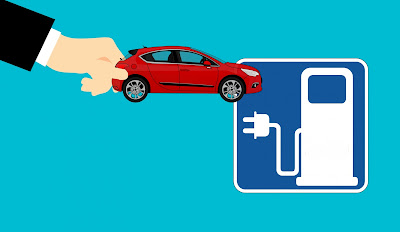EV Charging on the Go: Exploring Highway Charging Networks
As electric vehicles (EVs) continue to gain popularity, the need for robust highway charging networks becomes increasingly vital. Travelers on long journeys require reliable and accessible charging stations to alleviate range anxiety and promote the widespread adoption of electric vehicles. In this exploration of highway charging networks, we delve into the dynamics of these networks and the associated with EV Charging Station Profit Margin.
The Growing Demand for Highway Charging Networks:
Highway charging networks play a pivotal role in the EV ecosystem, providing drivers with the confidence to embark on extended journeys. These networks are strategically positioned along major highways, enabling EV owners to recharge their vehicles during pit stops, effectively transforming what was once a limitation into an opportunity for exploration.
Network Expansion and Accessibility:
One of the key aspects of successful highway charging networks is accessibility. Charging stations should be strategically located at convenient intervals, allowing drivers to plan their routes with confidence. The ongoing expansion of these networks is a collaborative effort involving governments, private businesses, and energy companies. The goal is to create a comprehensive charging infrastructure that supports the growing number of electric vehicles on the road.
EV Charging Station Profit Margin: A Balancing Act:
While highway charging networks contribute significantly to the EV ecosystem, the profit margins associated with operating these charging stations involve a delicate balancing act. Several factors influence the financial viability of EV charging stations, including infrastructure costs, electricity prices, operational expenses, and customer utilization rates.
Infrastructure Costs and Initial Investments:
Establishing a highway charging network requires a substantial initial investment in infrastructure. This includes the installation of charging stations, electrical equipment, and connectivity systems. The sophistication of these charging stations, including fast-charging capabilities and smart technologies, contributes to the overall cost. The profit margin is influenced by the time it takes for these upfront investments to be recouped through usage fees.
Electricity Prices and Operational Expenses:
The cost of electricity is a significant factor in determining the profit margin of EV charging stations. While some charging stations offer fixed pricing models, others may adopt dynamic pricing strategies that consider factors like peak usage times and electricity demand. Balancing competitive pricing with operational expenses, such as maintenance, customer support, and network connectivity, is essential for sustained profitability.
Customer Utilization Rates and Revenue Generation:
The success of highway charging networks is inherently tied to customer utilization rates. Higher utilization rates mean more consistent revenue generation. Charging station operators often explore innovative revenue streams, such as partnerships with local businesses, advertising opportunities, or subscription-based models, to enhance profitability while keeping charging fees competitive.
Government Incentives and Sustainability Initiatives:
Governments worldwide recognize the pivotal role of highway charging networks in promoting sustainable transportation. Incentives and subsidies are often provided to encourage private entities to invest in and operate charging stations. These government initiatives can positively impact the profit margins of charging stations, making them more financially viable and attractive for private investment.
The Future of Highway Charging Networks:
As technology advances and EV adoption accelerates, the future of highway charging networks looks promising. Continued collaboration between public and private sectors, advancements in charging technology, and a commitment to sustainability will contribute to the growth and profitability of EV charging stations along major roadways.
The Final Words:
The exploration of highway charging networks involves understanding the delicate balance between providing a vital service to EV users and maintaining a sustainable business model. While the initial investment and operational costs are significant, ongoing advancements, government support, and innovative revenue strategies contribute to the overall success and profitability of highway charging networks. As the electric vehicle landscape evolves, so too will the dynamics of these charging networks, ensuring a seamless and sustainable future for long-distance EV travel.




Comments
Post a Comment